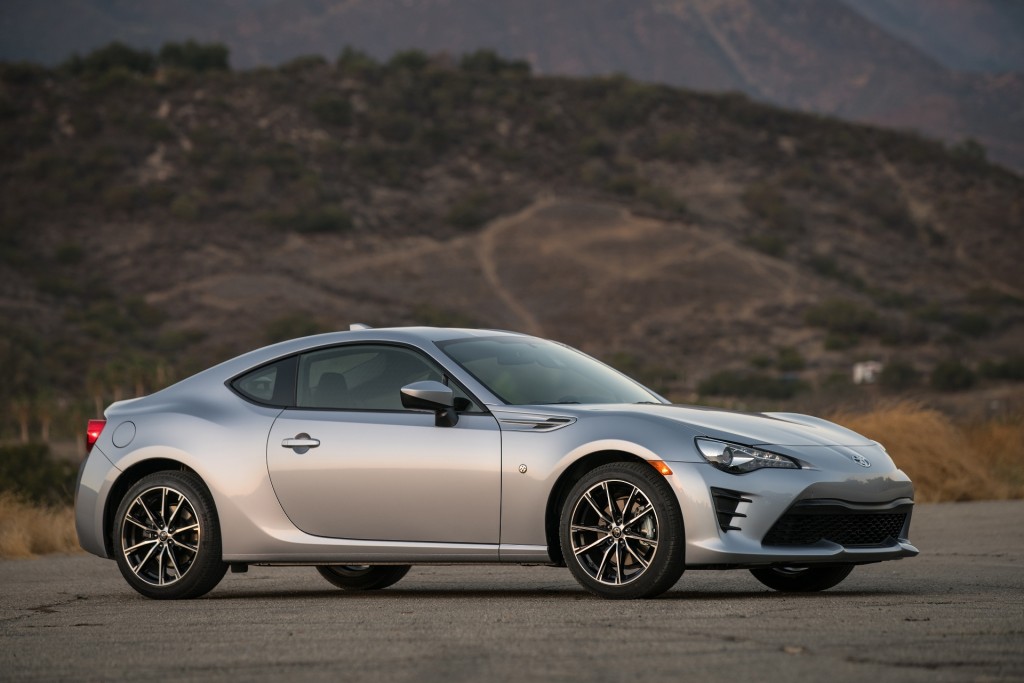Every automaker is now working on one or many electric cars, but some are at the head of the pack and others lag behind.
General Motors already sells the 238-mile Chevrolet Bolt EV, and Volkswagen has firm plans for multiple electric cars by 2020 and as many as 30 by 2025.
That leaves Toyota, the third of the world's three largest carmakers and by far the most profitable, lagging behind.
DON'T MISS: Why Toyota's 'agonizing' U-turn toward electric cars? Because China says so
While CEO and namesake Akio Toyoda is now heading a special project team to build an all-electric car by 2020, he still apparently has qualms about cars powered by batteries.
That's the conclusion from an interesting interview with Toyoda published on Monday by industry trade journal Automotive News (subscription required).
The story opens with the presentation of an all-electric version of the Toyota 86 sports car (nee Scion FR-S) to Toyoda by his engineering team as a gift.

2017 Toyota 86
The CEO, it appears, was less than impressed. Asked for his impressions, he said plainly, "It's an electric car."
We're not sure how you would translate the sentiment "Meh" into Japanese, but that's the feeling conveyed.
More broadly, Toyoda worries about how to build electric cars that aren't simply transportation commodities.
READ THIS: Toyota CEO Akio Toyoda to run electric-car division
How, he mused, does his company build an electric car that buyers will mention in sentences starting with the words "I love"?
The structure he created as head of the electric-car group is flat, with only four leaders: Toyoda, plus representatives from Aisin Seiki, Densu, and Toyota Industrial, three suppliers within the company group.
The CEO has clearly brought passion to his job, and it has translated into Toyota's sprawling array of products in interesting ways.

2016 Toyota Prius Two Eco
The design language has become more expressive, with results that range from the bizarre (the 2016 Prius) to the very interesting (the 2017 C-HR).
Driving quality of the latest Toyotas is considerably better than before; they're not Mazdas, yet, but no longer do new models offer the road feel of pudding.
Toyoda is aware that electrifying the powertrain is not the only challenge: the company must also include connectivity with other vehicles and the surrounding infrastructure, and continue to integrate more electronic safety systems to move toward what will one day be a self-driving car.
CHECK OUT: GM goal: profitable, affordable electric cars built in big numbers
The answer to Toyoda's question may be Tesla, and it's clear that he's aware of that company's disruptive role over the last decade.
"Think about Tesla," he told Automotive News reporter Hans Greimel. "Tesla is producing cars. And Toyota is producing cars. But what Tesla is producing is something close to an iPhone."
The two companies no longer have formal ties, following a 2009 deal in which Toyota took a small stake in Tesla, sold its assembly plant in Fremont to the Silicon Valley company, and contracted with Tesla for joint design and engineering of 2,500 electrified Toyota RAV4 EV compliance cars.

Elon Musk Shows Akio Toyoda 2011 Tesla Roadster Sport 2.5
The Toyota CEO called the transformation of his company a "paradigm shift," and urged patience as it changes working styles and continues to embrace costly new technologies, neither of which may immediately boost the bottom line.
Luxury brands like Audi, BMW, and Mercedes-Benz all have strong brand identities that can be translated into electric cars, but for Toyota—maker of ultra-reliable but often generic transportation appliances—that challenge may be tougher.
It seems likely that despite the separate ways both companies have gone, Toyota's CEO continues to have Tesla on his mind.
An interview we conducted several years ago with a young Toyota engineer on the RAV4 EV project exposed the cavernous differences in philosophies between the two companies in 2012.
The question of how Toyota can be more like Tesla, and cars that both plug in and produce passion in their buyers, remains one that defies easy answers.
_______________________________________













